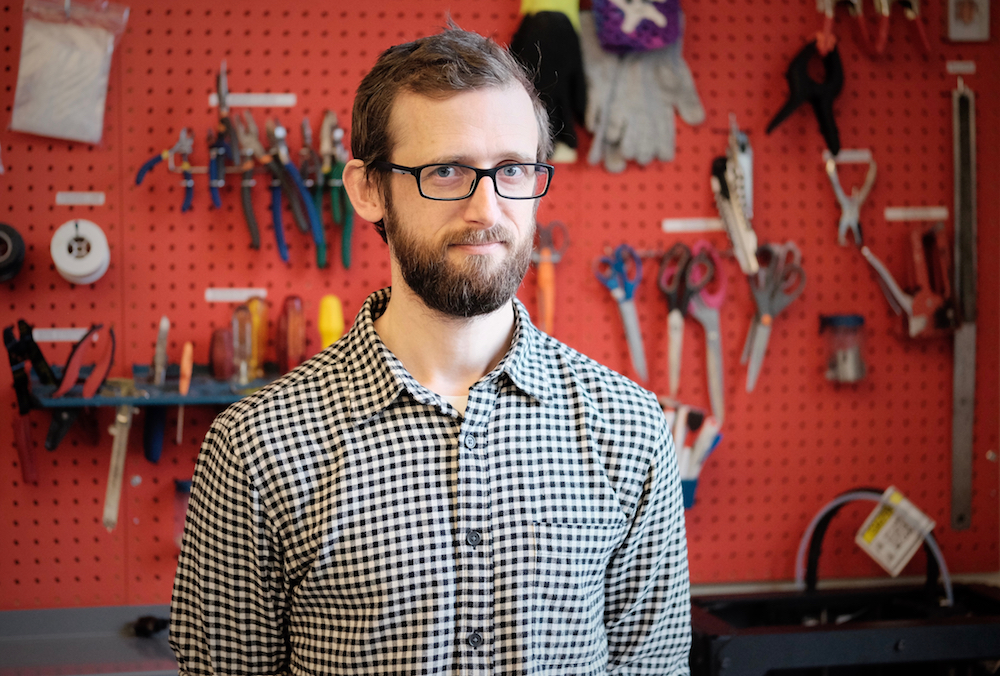Concordia’s Technoculture, Art and Games research lab brings new ideas to digital life
It is as if you were doing work is a video game that starts on a retro, Windows-like desktop computer interface. It asks you to write a bunch of seemingly productive emails and accomplish easy tasks. As you complete them, you earn points and eventually get promoted. Inspirational work-related stock photographs pop up every few minutes. It can go on forever or until you, the player, die.
This video game is a work of speculative design, a field of academia where researchers design hypothetical futures, explained Pippin Barr, the game’s creator. Barr is also the co-director of the Technoculture, Art and Games (TAG) research lab at Concordia, a place for researchers, professors and eligible graduate students from diverse faculties to research video games and design them collaboratively.
According to Barr, in an automated future, computers would replace workers, and humans would be free to do whatever they please. He was left wondering: What would we be doing if we didn’t have to work anymore? Maybe we’d always be “Netflix and chilling” or spending our time creating art?
What Barr speculated, however, was that we might feel the need to play a video game where we accomplish work to feel productive again. Instead of writing an essay about the idea, he designed and programmed a game around it.
The TAG lab hosts 57 students—13 of whom joined in 2017—and 21 faculty members. But when Barr and I met on a Thursday morning, the lab was empty.
“Ten in the morning is a bit early for graduate students,” he explained. “But I’d say, on average, you might see at least 10 or 15 or 20 people in here. There is always a nice buzz around.”
Located on the 11th floor of Concordia’s EV building, the lab is a large, open, well-lit space with computer stations lining three of its four walls. A chalkboard bears the marks of a past brainstorming session, and there’s a small DIY workshop bench with a 3D printer.
In the lab’s entrance, various gaming machines are plugged into a TV. There’s even a fake fireplace to gather around. “We make games and playful things,” Barr said.
“In Quebec [and Canada], there is a thing called research creation,” said, “which is the idea that creative or artistic practice—so for instance making a videogame—can be a form of research and knowledge production. That’s a very big part of what TAG does.”
As Barr explained it, research creation involves developing ideas about the future, but “rather than writing an essay about it, […] you can convey the actual experience of that future by creating a game.”
Another game produced in the lab is a game called rustle your leaves to me softly. Created by PhD students and TAG members Jess Marcotte and Dietrich Squinkifer, the game asks players get to know a fellow living creature: a live plant. When the player touches a real plant connected to a computer through sensors and wires, the plant responds with soothing sounds and poetry. It is an attempt to let a plant communicate.
“We also have completely just straight-up scholars [in our faculty] who write these amazing books, like Mia Consalvo, for instance,” Barr said. “She is extremely well-known in the field of game studies.”
Consalvo is a professor and the research chair in game studies and design at Concordia. Her latest book, Atari to Zelda: Japan’s Videogames in Global Contexts, studies Japan’s video game scene and the aesthetics of Japanese video games. “She writes in this extremely scholarly mode,” Barr said.
So how can graduate students become members of the lab? According to Barr, “students who are planning on doing a graduate degree […] have to choose a supervisor, who is going to be the main person who advises them in their process. If that supervisor is a member of TAG, then as an added bonus, they become a member of the lab if they want to.”
The lab does try to make exceptions for students with special projects, Barr Said. “If it seems that being at TAG would be really good for that project and they could contribute back to TAG, then they can propose it to us.” But access is limited. “We try to have as many people as we can without accidentally completely overstraining our resources.”
Photo by Olivier Sylvestre
